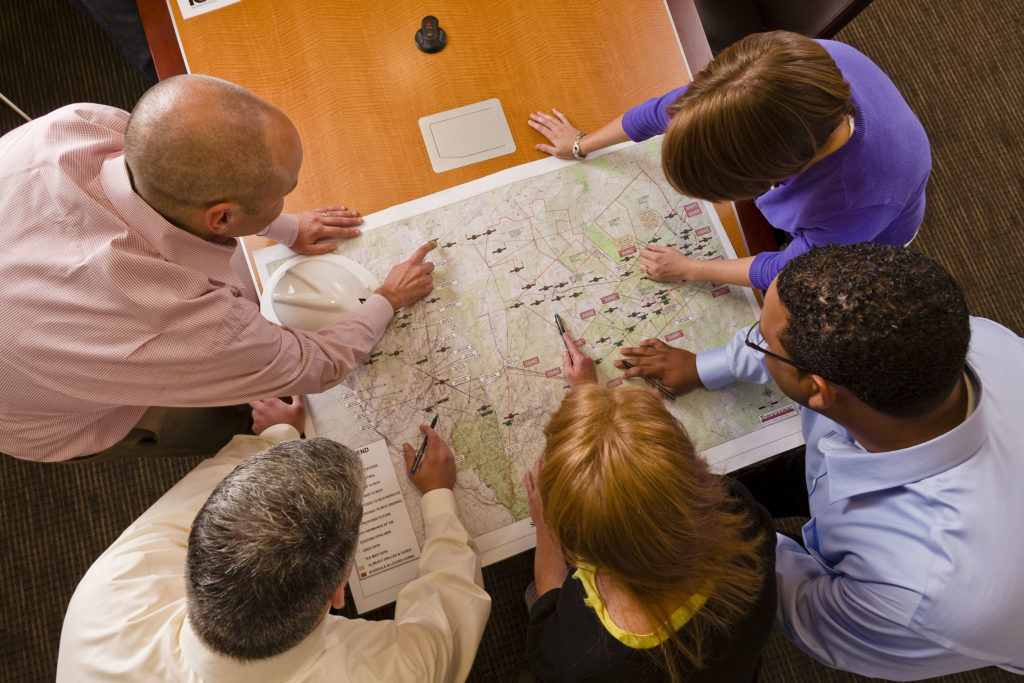03
2018Recently, I posted a vlog (here) of my top three tips on how to prepare for a business meeting. I also posted a blog (here) that expanded on those top tips with a few more. I’ve been a freelancer for well over 20 years now, and if I can save someone the years it takes to learn these types of professional details, I’ll consider that time well spent.
School is great for learning how to hone your skills, but it oftentimes takes experience on the job to learn some of the finer points of how to get work done in the real world.
Here a summary of the top three tips from the vlog:
1) Listen
Really listen to the client. What do they need? People in business usually know what they think they need. But you, as a freelancer, may listen to them describe their project and understand a different or supplementary way to get their job done better. You are their professional resource in this way, so listen. And speak up.
2) Don’t Quote Money
By all means, bring your rate card and share it. But don’t develop a custom quote for a client on the fly. You owe it to both them and yourself to give an accurate, well-developed quote for what they’re trying to accomplish. If you quote too high, you lose. And if you quote too low, you lose. A good quote is a matter of respect for everyone involved with the project. Don’t be afraid to tell them that.
3) Boundaries
Guard your boundaries and be clear. Examples:
- Time: Arrive on time and be ready to end on time. If you have time constraints, say so up front so everyone knows what to expect.
- Meals: If you’re meeting for lunch, know who’s going to be there and who is expected to pay.
- Knowledge: Stick to what you know. If you don’t know the answer to a client question on the fly, say so. Tell them you’ll research it and get back to them. Then do it. You being a reliable resource is more important than giving them an answer right now.
Bonus Points for Readers
What other things should you make sure you do during a business meeting? Here are some:
- If you have to leave by a certain time, set a silent alarm on your phone for 10 minutes ahead of that time. You don’t want to rush out the door in mid-thought in a panic.
- Other than the above situation, avoid having your phone out during a meeting. There might be a moment when a “we all need this,” item arises (looking something up or setting your next meeting), but other than that, put your phone away.
- Have relevant questions for them. It will show them you get who they are and what they are trying to do.
- If you have a mailing list, ask if they’d like to be on it.
- Ask for referrals for other similar types of projects. They may know of another branch of their institution or people in the same line of work that are looking to get some work done also. People know people. And positive word of mouth will get you hired faster than the best portfolio in the world.
- Bring relevant leave-behinds: business cards for everyone in the room, copies of your rate card, pens with your logo on them, or whatever else you have that will help create that all-important “top of mind awareness,” for you and your work.
- Designate who will do what after the meeting. Are they supposed to make a decision and let you know what it is? Are you supposed to research something and get back to them with a proposed bid or some information? Make sure everyone knows what they’re supposed to do next and who they need to communicate to.
- Send them a thank you after the meeting for the meeting itself – at least 24 hours after the meeting. Even if the meeting doesn’t end up resulting in work for you, they took time out of their schedule to talk to you and you’re still a freelancer. They may need you in the future and you want them to remember you positively.
- Take care of your follow up. No excuses.
Undoubtedly There’s More Out There
You may have learned different things than I have over the years. Wading through the murky waters of professionalism and prosperity in the freelance world can be tricky! Please share any tips you have in the comments below.
02
2018As a freelancer, getting meetings with a prospective client is the holy grail – second only to getting the work itself. But, knowing how to appropriately plan for those meetings isn’t taught in school. Doing meetings well can make or break your opportunity to get work. Here are my top three tips for preparing for a business meeting. This is your homework before you even get a meeting.
For those of you who prefer reading to vlog-watching, here’s a quick summary of the top three:
1) Do your homework.
Who is your client? What do they need or want to thrive in their industry? And specific to their current situation, are they ready to have a meeting? If so, about what? Who are the decision-makers and will they be at the meeting? You’ll want to make sure you can speak to the client’s needs and have the right players in the room to get real work done.
2) Dress for success.
Many companies have nice t-shirts with their logos printed on them. Those are practical and great if a nice t-shirt is appropriate for the client you’re meeting with. If you knew you were going to photograph one of the top people in the business world, wouldn’t you dress up a little? Seriously—dress for success. You will be judged on how you look.
3) Logistics.
Map out the location and route to the meeting in advance. Don’t rely on your phone’s GPS—sometimes there are tricks to finding a building. And a phone can’t give you notes on finding parking or which door to use. Get clarification from your client and check it out before you go.
Bonus Points for Readers
Here are a few more tips on how to prepare for a business meeting:
- Take your client’s contact information with you. All the preparation and mapping in the world won’t keep you from getting stuck behind a traffic accident or getting a flat tire when you least expect it. Have a way to get in touch and let them if promptly if you are going to be delayed.
- Value people’s time—including your own. That means don’t cancel unless you absolutely have to; and if you do have to cancel, cancel as far in advance as you can. On the flip side of that, if the meeting was set up two months out, call and confirm it’s still on the calendar and moving forward.
- Bring your collateral. You’re a professional about the enter the room where you might meet a half a dozen higher ups from this company you are trying to woo. Make sure you have enough collateral with you to hand out.
- Take your portfolio—and test it. Most of us have our portfolio on an electronic device of some sort. Make sure your device is fully charged, bring your cords and adapters, and test your software before you go to make sure it works smoothly.
So There You Have It
The business rule of thumb is that you should spend about as much time preparing for a business meeting as you spend in the meeting itself. Spend that time making sure you know your client, your location, your wardrobe requirements, your client’s contact information, your schedule, your professional collateral, and your portfolio.


